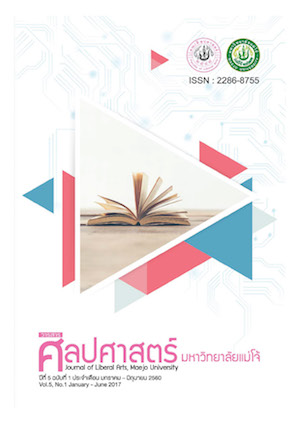สถานะทางการเงินและการเป็นสมาชิกกลุ่มต่างๆ ของสมาชิกสหกรณ์การเกษตรโครงการหลวงแม่โถ จำกัด (Financial Situation and Group Enrollment of Members of Maetho Royal Project Agricultural Cooperative Limited)
Main Article Content
บทคัดย่อ
This research studies the background of conperative members’ households, their financial and social contexts, and the obstacles preventing the household from increasing their incomes and reducing their expenses. The study populations were 167 members of Maetho Royal Project Agricltural Cooperative Limited, located at Hod District in Chiangmai. The questionnaire was used as a data-collecting tool while descriptive statistics: frequency, percentage, and mean, were used to analyze data.
The results show that the majority of members are 40 years old, on average, and mostly male. Most of them graduated from high school. There are about 5 members in their households. They have their average incomes over 25,000 baht per month and have average household expenditures less than 10,000 baht per month. They spend their money on agricultural cultivation 56,085 baht per year and on livestock 1,747 baht per year. They also have been engaging in agriculture for about 15 years and attended 6 agricultural trainings. Moreover, they are members of a credit group, but not of any social groups. They own 3 plots of land, taking up totally 8 rais. For the land usage, in year 2014-2015, 107 households use the land for vegetable cultivation with the average of 3.07 rais per household, 24 households for crop farming with the average of 6.02 rais per household, 16 households for planting fruits with the average of 4.69 rais per household, and 3 household for planting flower with the average of 0.487 rai per household. Most of members sell their products to the cooperative. However, they still have debts arising from loans they spend on their agricultural investment, for example, building house for vegetable farming, buying seedlings and other related production factors. Those investments made their incomes inadequate to their expenses. Most of then are indebted to the village funds, but the great amount of loans are from the Bank of Agriculture and Agricultural Cooperatives 184,625 baht on average. Nevertheless, the debts are reduced more than previous years. They take 5 year to accumulate their debts, however, they have savings at the cooperative. Most of them face on the problem of insufficient water resources for agriculture that affect the crop quality and productivity.

